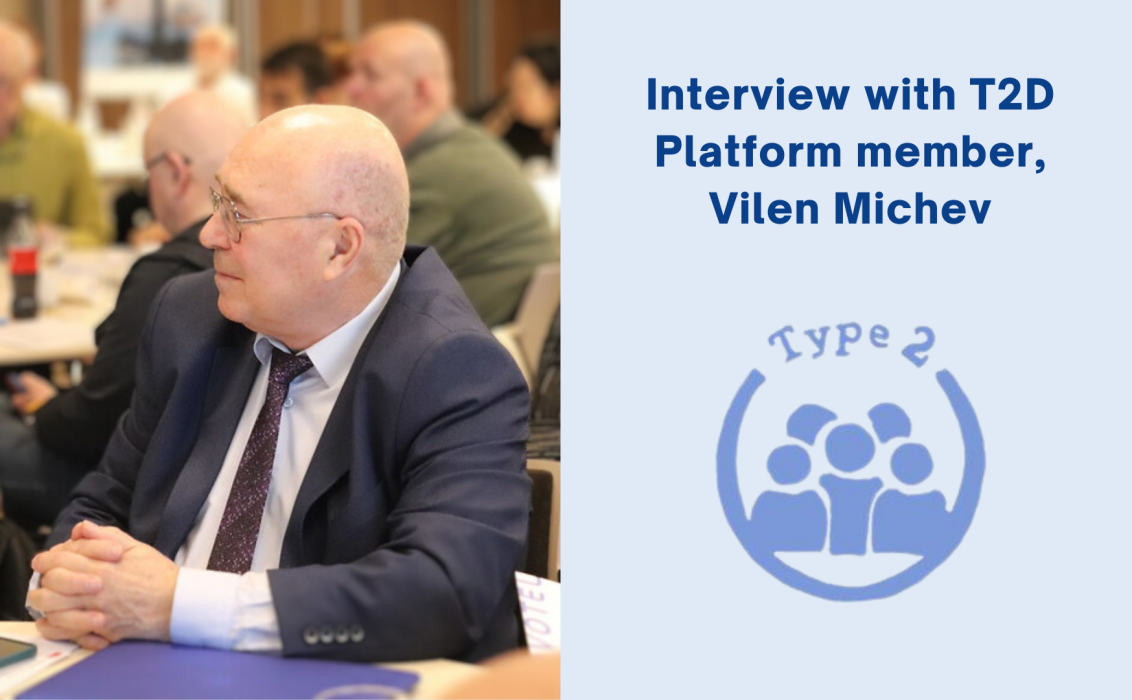Being pregnant with type 1 is like going through two pregnancies at once.
With 60 million people with diabetes and 32 million more at risk of developing it, Europe is facing a major health pandemic. Today, it is estimated that 1 in 9 women over 25 have diabetes in the continent, and 1 in 7 births is affected by gestational diabetes, leading within 10 years after pregnancy to type 2 diabetes in 50% of all cases. In addition to their direct relations with diabetes, women are key agents in the adoption of healthy lifestyles which are crucial to prevent type 2 diabetes and also to maintain appropriate blood glucose levels and decrease the risk of debilitating complications. Furthermore, mothers are also often being the ones looking after the therapeutic and psychological aspects of a child with type 1 diabetes.
On the occasion of World Diabetes Day, IDF Europe decided to run a series of interviews of women having a direct relation with diabetes. Whether they have diabetes, have someone in their family living with the condition or they advocate at international level, they all have one thing in common: diabetes is at the centre of their daily life and they are all committed to fight for stronger rights and lesser discrimination.
Today, we spoke about being a mother with type 1 diabetes with Sandra Brsec Rolih from Croatia, the proud mother of two boys, Lucas 11 and Noah 6. Sandra is member and treasurer of IDF Europe Board (2015-2017) and head of sales and development in a media company in Zagreb.
Sandra, having a baby when you have type 1 diabetes can be a long process? Can you tell us a bit more about this process prior and during pregnancy?
As a mother, for me one thing is certain: Having a baby with type 1 or without is a wonderful gift. I am the mother of two boys, Lucas and Noah, and I can ensure you that, even with diabetes, both my pregnancies have been the happiest periods of my life. I enjoyed every second of it, dealt with changes and mood swings like every other woman. I highly recommend it, just relax and enjoy that precious time.
But you are right. A pregnancy with diabetes is considered to be a high risk one and therefore planning it in advance is important specially to ensure that the woman have well controlled glucose levels ahead of it and secure a safe and healthy pregnancy. In most European countries now, pregnant women with diabetes follow special treatments including the collect of glucose profile every three weeks– collect of samples of blood every 2 hours for 24 hours and according to the lab results, adaptation of the insulin dose. It also required hospitalization 2-3 times, for complete checkups.
At the beginning of the pregnancy glucose levels are very stable, but as the pregnancy moves forward, insulin doses rapidly grow. In my case, my regular dose of insulin was 2-3 units before meal and by the end of the pregnancy my dose was 24 units before meal and dropped down to the original level as soon as I gave birth!
Also, for both pregnancies, I gave birth 2-3 weeks earlier than scheduled and the size of my babies was slightly bigger that in regular pregnancies which is surely a consequence of my diabetes.
You mentioned that having stable blood glucose levels prior and during pregnancy is key. What is the role of diabetes self-management?
Being pregnant with type 1 is like going through two pregnancies at once. Your hormones are living a life of its own, so does your glucose level. Putting the two in balance sometimes just seem impossible. However, it’s crucial. I had to measure my glucose 6-10 times a day and make insulin corrections whenever necessary. Even though this may sound overwhelming, it didn’t change my everyday routine. I worked almost until the end of my pregnancies, exercised, walked a lot and truly enjoyed that time.
You have 2 kids. What is the impact of your diabetes on their life?
I am very happy that none of my children developed diabetes so far and I hope they won’t. As they were growing up, they wanted to observe everything I did and I always explained them everything they wanted to know about diabetes. They are very familiar with scanning, insulin injections, hypoglycemia. Once in a while I measure their glucose and, as every mother, I’m carefully observing for any potential signs. And to be honest, my diabetes has a positive impact on their life. In fact as I developed diabetes at the age when I was learning how to cook, I started implementing healthier preparation techniques right away. My boys are used to full-grain products, enjoy nuts as snacks and love fruit and vegetables. At the same time, they have no constraints regarding the food they want. They equally enjoy chocolate and cookies as any other kids, but the majority of time they have healthy meals without even knowing.



